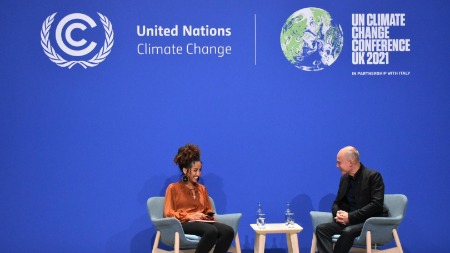Opinion
The CO2 law promotes the economy as much as the environment.

Some economic circles fear that the CO2 law represents a weight for companies and a cost for individuals. What if it was exactly the opposite?
As Switzerland accounts for 0.1% of global CO2 emissions, its efforts, although necessary, will not be enough to stop the melting of glaciers. The interest of the CO2 law lies elsewhere. It will make our economy more competitive and profitable by modernizing our infrastructure.
CO2 is not just a marker of climate change. It’s above all an indicator of inefficiency. Most of the technologies we use in mobility, construction, housing, industry, agriculture, are outdated and inefficient. They waste resources, energy and ... a lot of money, in addition to emitting CO2. Using oil heaters when heat pumps are cheaper to use makes no sense. Neither does living in poorly insulated housing. It’s absurd just as driving with combustion engines is, when electric vehicles have much better yields (ratio between energy used and power returned).
It is not the CO2 taxes that will be expensive, but the continued waste and inefficiency. All those willing to be up-to-date will make direct savings and will also receive a rebate on what those resistant to change will have to pay. They, in fact, will pay more, and that is why this law scares them.
Switzerland loses 13 billion francs every year to buy oil and gas from abroad. How else can we explain the slow pace of the energy transition than by the opposition of those who put their personal interests before those of the country by continuing to import oil and polluting cars.
This law will fix ecological standards that will allow the creation of jobs through new industrial opportunities, and will enable clean technologies and renewable energies to enter the market. With my Solar Impulse Foundation, I spent the past 4 years identifying cost effective solutions to protect the environment and have found over a thousand. Enough to meet the demands of a low-carbon society.
Let us therefore give up the false idea that the CO2 law will generate costs. On the contrary, it will generate profitable investments, when money has never been so cheap. Such a window of opportunity to modernize our country and increase purchasing power will not arise anytime soon.
With flagships such as EPFL and ETHZ, Switzerland is already a pioneer in environmental innovations. Of the 1,000 solutions labeled by my foundation, more than a hundred come from our country. Sustainable finance, waste recycling, water conservation, electric aviation, modern agriculture, hydrogen, renewable energies, alternative materials… Cleantechs today represent more than 4.5% of Swiss GDP and around 211,000 jobs.
But for these solutions to develop, an ambitious legal framework is needed that combines precise objectives, a roadmap, tax incentives and investments. Setting CO2 reduction targets is therefore not only an environmental imperative, but above all it’s an economic evidence.
Bertrand Piccard
Chairman of the Solar Impulse Foundation



